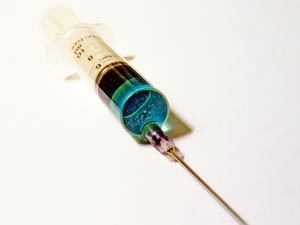Ethics commission will study situation, but won’t act for now
 For many it may seem inconceivable that Eufemiano Fuentes has been able to retain his medical licence despite the blood bags and banned substances seized from his Madrid lab in 2006. Officially working as a gynaecologist but clearly spending his time in different areas of medicine, time may be ticking for the Spaniard’s career.
For many it may seem inconceivable that Eufemiano Fuentes has been able to retain his medical licence despite the blood bags and banned substances seized from his Madrid lab in 2006. Officially working as a gynaecologist but clearly spending his time in different areas of medicine, time may be ticking for the Spaniard’s career.
The 55 year old was one of sixteen people arrested last Thursday and while he was released three days later, he faces charges in relation to his part in an alleged doping ring.
Now the professional ethics commission of the Colegio de Médicos de Las Palmas (Medical Association of Las Palmas) is set to analyse his involvement in the latest case, called Operación Galgo (Operacion Greyhound). Its president Pedro Cabrera has said that they are “studying and evaluating” the situation, according to EFE. He said that “things cannot be done hastily, and even more so if justice is acting.”
It remains to be seen what will be done, although Fuentes will shortly face trial in relation to Operación Puerto. Spanish media reported last week that he, José Luis Merino Batres and, possibly, Fuentes’ sister Yolanda are all facing charges of crimes against public health. This relates to the blood bags found in the Puerto investigation, which authorities say were not stored correctly and therefore could have been dangerous.
If this is upheld, they could face serious penalties and, presumably, the professional ethics commission would have grounds to remove his medical licence.
For now, Cabrera is playing things down. He said that a presumption of innocence has to be observed and, at this point in time, “the matter is in hand of the judicial authorities,” and that the ethics commission should not interfere with his work. He said that as a doctor, Fuentes had “not committed any offense.”
That position may well change in the future. Depending on the outcome of the Puerto trial, he could be found guilty of crimes against public health. But whatever happens in that earlier case, the situation appears to be more clear-cut nowadays as specific anti-doping laws were introduced after Puerto.
It should consequently be far easier for prosecutors to get a conviction and, equally, for medial ethics committees to take serious disciplinary action.
Fuentes was first implicated in doping matters in the eighties; over 30 years later, he’s still involved in sport, and still being linked to the administration of banned substances. Perhaps the Colegio de Médicos de Las Palmas will finally get around to asking why a gynaecologist has followed such a career path, why a doctor with this speciality has had so many male clients, and how he has made so much wealth in that time.